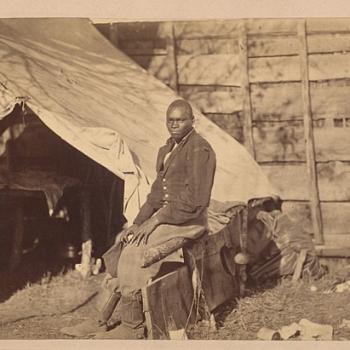Star Trek delayed my Dad’s pastoral visit: it had that power.
He came to visit a family and they paused him while they finished an original series episode.
He understood. A world without DVR’s was like that.
Picking Star Trek as a show that mattered is obvious, because it was one of the first television shows that fans defended as mattering against ridicule. Star Trek viewers became fans the way Packer backers or Republicans were formed. People always had joined a movement based on a sublime experience, but Trekking was a movement based on the experience of a scripted television science fiction show: a genre held in such low repute that another network thought Lost in Space was a better bet. So Star Trek pioneered fiction on television with back story that mattered, television that was taken more seriously than movies, and sometimes more seriously than it merited.
William Shatner was wise when he told certain fans to “get a life.” People enjoyed I Love Lucy, but nobody wanted to live in the Ricardo’s universe. Star Trek fandom would have gone to the Federation in a shot and a few pretended they were there when they were not.
Fantasy is a nice place to visit, but you cannot live there, only the pathetic try.
Later Gene Roddenberry, the show’s creator, would press the original three seasons firmly into the camp of his own secular humanism, but the multitude of writers on the series defied his secular fundamentalism. The show also resists easy generalizations. One lazy trope such is that Star Trek presented an “optimistic view” of the future at a time when the nation needed it. The show surely showed progress against racism, sexism, and other ills of the age, though less than we might have hoped. Humanity survived to explore the start and that beats nuclear holocaust, but that really isn’t that much.
What is notable about Star Trek, what makes it work still, is that people were (in the words of one episode) “still people.” They remained a muddle, a bit angelic and a bit demonic. We were still religious and irreligious. Federation bureaucrats were bureaucratic and rogues were roguish, some lovably and others not so much. The creator would sometimes forget that he had pitched “Wagon Train to the Stars” and most of Star Trek would have worked just as well as a Western as science fiction.
The demands and limits of sixties television forced writers to be wiser about the future than they might otherwise have been. After all, if computers continue to advance aren’t they more likely to have a few switches (adjusting function to situation) than the very elaborate systems of later shows? Future captains will tell their computers “yes” or “no” and not do all the work for them: just like Captain Kirk.
The bridge of the old Enterprise is thus less out of date than the reboot movie bridges!
Star Trek was in fact not particularly philosophically coherent like the sixties. It favored women’s equality, but thought that would work out (mostly) in traditional family structures. It hated racism, but so that all races could adopt 1960’s American republicanism and values. It was tolerant (see the Prime Directive that urged no interference in other cultures), but wrestled with the pain and death this allowed.
If Kirk could vaccinate a planet, wasn’t he an evil god to allow suffering while waiting for it to develop vaccines on its own?
I don’t think so, but then I think traditional Christian arguments against the problem of evil work. Kirk should have left many more civilizations alone than he did. Like many opposed to the Christian kirk today, Captain Kirk, the autonomous man, fell for the lie that Kirk knows how much or how little freedom a people need to flourish.
But the very tensions the inherited Christian morality and the “modern” secular immorality created posed good questions for a young viewer. These questions still resonate. Star Trek gave me some good questions, a few that still haunt me and are worth considering.
Kirk quietly defied the moral order of the sixties American middle class and bedded women without marrying them while remaining a “hero.” He lived for his ship and acted the role of the Victorian cad, but was praised for it. Didn’t that create a poverty in his relationships? Didn’t he end up using women like poor Yeoman Rand? Were women really empowered by the “liberation” pictured on the show? What is the relationship between human betterment and sexual morality?
Kirk allows person to die so that millions will be saved. Was this his role? Would I have let Joan Collins die? Do the needs of the one I know ever outweigh the needs of the many whose fates are not directly my concern?
Several episodes deal with anger over past wrongs, not surprising in a show written two decades after World War II. How can one escape the desire for vengeance? A show character like Kodos the Executioner has “moved on” from his crimes, should we? What is the relationship between justice and mercy? In the state? In the individual?
The crew of the Enterprise is structured like the military, but often defy orders for the Greater Good. Is this moral? Could Star Fleet really allow a rogue captain? Is the morality of disobeying an order determined by the outcome? When does a “Nuremberg” moment come when a citizen must defy his superiors?
A repeated theme of the show is that we need “our evil side.” Evil is often conflated with power, courage, or daring. The “good” is soft or weak. But of course, we do not really need “evil” to be courageous. We could be the British gentleman of Trollope’s best stories simply doing his duty in tough times. Christianity asserts that purging evil will lead to strength, not weakness, that mercy can be powerful. Which view is correct?
Like Newt Gingrich, Star Trek assumes a civilization must do big things to flourish. Contrast this with the Swiss way forward or the “Little England” views of Gladstone. Must we “boldly go” in order to survive?
Religion is private on Star Trek (TOS), but exists. Where does the Federation get her morality? On what basis? Is there a “neutral” or secular morality? What happens with private morality clashes with civil law?
Star Trek was better at posing questions, revealing tensions, then preaching. Like Spock, half-Vulcanian and half-man, the show was half of its time and half degenerate. The sermons, and Kirk gets more than a few, are laughable. The series confused “free love” with morality as if written by a Victorian reprobate, autonomy with liberty, and science with philosophy. Somehow, it taught, if we all got good educations, did our science homework, and were tolerant, we could muddle through.
Somehow. Someway. Surviving every day.
Nobody should have this hope without substance.
But if there were better messages in the late sixties, there were also worse. Star Trek anticipated the future less well than it limited our imaginations of the future by reinforcing the tropes of Golden Age science fiction on the fan base. After all, how do we know the first super-race we meet will not be Southern Baptists eager to meet the residents of the planet where Jesus was born?
And yet, Star Trek reminds viewers that whatever the technology the story of sentient beings matters most. Technology changes, but love endures with the stars.
When it echoed these deep truths, Star Trek was, is, and will be fascinating.












